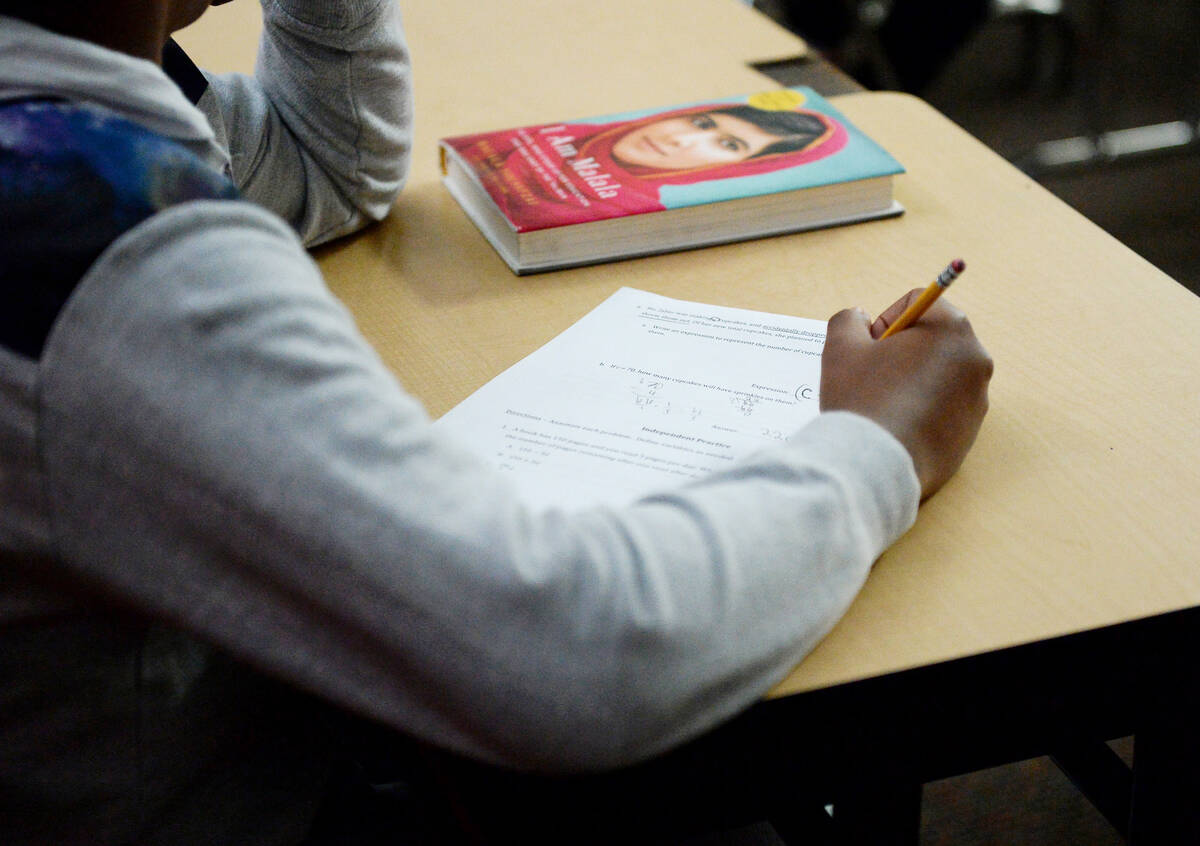Education
Teachers Reject ‘Equitable Grading’ as Standards Erode

The controversial educational approach known as “equitable grading” has faced significant backlash from teachers in the Clark County School District. Introduced in 2021, this reform aimed to alter traditional grading practices under the banner of equity. A recent survey by the Thomas B. Fordham Institute confirms that many educators are skeptical of these changes, particularly those that dilute academic standards.
Among the reforms implemented were policies such as unlimited test retakes, no penalties for late homework, and a minimum score of 50 on assignments, regardless of whether the work was completed. Teachers expressed concern that these measures, intended to foster inclusivity, have instead masked underlying academic issues. In particular, the introduction of a minimum “F” grade allowed students to receive credit without fulfilling basic assignment requirements.
After two years of these policies, district officials have begun to roll back some of the most contentious reforms. Teachers reported that students were taking advantage of the system, leading to a decline in genuine effort and motivation. This sentiment is echoed in districts nationwide that adopted similar grading practices.
Nationwide Concerns Echoed in Teacher Feedback
The Fordham Institute survey revealed that over half of the teachers across the United States are doubtful of equitable grading reforms. While a slim majority supported unlimited test retakes, other measures, particularly the minimum “F,” were met with significant resistance. The survey highlighted that at least half of the districts in the country had implemented at least one equitable grading reform.
Researchers noted, “Teachers don’t like it when the powers that be take a sledgehammer to their few sources of leverage over student motivation and effort.” The implications are clear: many educators feel that equitable grading undermines their ability to hold students accountable for their work.
Interviews with classroom teachers provide further insight into the frustrations surrounding these reforms. One educator stated, “Equity grading is not leveling the playing field. It is simply lowering standards.” Another teacher emphasized the negative impact on students: “Forcing teachers to give students half-credit on assignments that have not been completed is a disservice to students.”
The Path Forward for Educational Standards
As the debate over equitable grading continues, the implications for student learning and accountability remain significant. Many educators call for a return to traditional grading practices that better reflect student performance and effort. The pressing question remains: how can school districts balance the goals of equity with the need for high academic standards?
The situation in Clark County serves as a microcosm of a larger national conversation on education reform. With many teachers advocating for clearer and more rigorous academic expectations, it is evident that the push for equitable grading may need reevaluation to meet the needs of both educators and students.
-

 Technology4 months ago
Technology4 months agoDiscover the Top 10 Calorie Counting Apps of 2025
-

 Health2 months ago
Health2 months agoBella Hadid Shares Health Update After Treatment for Lyme Disease
-

 Health3 months ago
Health3 months agoErin Bates Shares Recovery Update Following Sepsis Complications
-

 Technology3 weeks ago
Technology3 weeks agoDiscover 2025’s Top GPUs for Exceptional 4K Gaming Performance
-

 Technology2 months ago
Technology2 months agoElectric Moto Influencer Surronster Arrested in Tijuana
-

 Technology4 months ago
Technology4 months agoDiscover How to Reverse Image Search Using ChatGPT Effortlessly
-

 Technology4 months ago
Technology4 months agoMeta Initiates $60B AI Data Center Expansion, Starting in Ohio
-

 Technology4 months ago
Technology4 months agoRecovering a Suspended TikTok Account: A Step-by-Step Guide
-

 Health4 months ago
Health4 months agoTested: Rab Firewall Mountain Jacket Survives Harsh Conditions
-

 Lifestyle4 months ago
Lifestyle4 months agoBelton Family Reunites After Daughter Survives Hill Country Floods
-

 Technology3 months ago
Technology3 months agoUncovering the Top Five Most Challenging Motorcycles to Ride
-

 Technology4 weeks ago
Technology4 weeks agoDiscover the Best Wireless Earbuds for Every Lifestyle



















